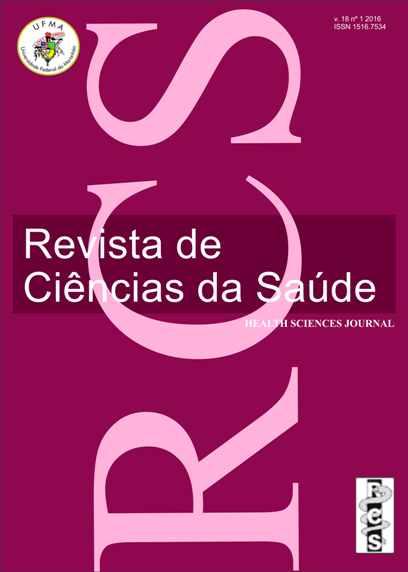AVALIAÇÃO DE MARCADORES DE ATIVAÇÃO E REGULAÇÃO EM LEUCÓCITOS DE PACIENTES INFECTADOS POR Plasmodium vivax
Palabras clave:
Plasmodium vivax, Células reguladoras, Co-estimulaçãoResumen
A malária é uma doença infecciosa aguda causada por protozoários do gênero Plasmodium e é transmitida ao homem pela picada da fêmea do mosquito Anopheles. Dentre as cinco espécies de Plasmodium que infectam seres humanos o P. falciparum e P. vivax são as mais prevalentes na região Amazônica. Dentre os mecanismos imunológicos associados a essa doença, muitos fatores ainda não são totalmente compreendidos, como relação entre ativação de células do sistema imunes e a função das células regulatórias no controle da parasitemia. Este trabalho analisou marcadores de ativação, regulação e moléculas coestimulatórias de células do sistema imune durante a infecção pelo Plasmodium vivax em pacientes infectados residentes na cidade de Cruzeiro do Sul (AC). O sangue periférico dos pacientes infectados foi coletado para realização de imunofenotipagem por citometria de fluxo. Indivíduos sadios nunca infectados com malária serviram como controle. Resultados: A infecção pelo Plasmodium vivax induziu o aumento de CD69 por células T CD4+, CD8+ e linfócitos B e de HLA-DR por linfócitos T CD4+. A expressão aumentada das moléculas coestimulatórias OX40 e ICOS mas não GITR também foi observada em células T CD4+ e CD8+ dos indivíduos acometidos pelo Plasmodium vivax em comparação com controles sadios. Por outro lado, um percentual significantemente maior de células T reguladoras foi observado no grupo de pacientes. Em conjunto, esses dados sugerem que a infecção pelo P. vivax promove aumento de marcadores de ativação e moléculas coestimulatórias em indivíduos infectados bem como condiciona um aumento no compartimento de células T reguladoras.
Descritores: Plasmodium vivax. Células reguladoras. Co-estimulação.
Abstract
Malaria is an acute infectious disease caused by a protozoa of the genus Plasmodium being transmitted by the bite of the female Anopheles´ mosquito. Considering the five species of Plasmodium that infect humans, P. falciparum and P. vivax are the most prevalent in the Amazon region. Among the immunological mechanisms associated with this disease, many factors are still not fully understood, as the relationship between the immune system cell activation and function of regulatory T cells in the control of parasitaemia. This study examined activation markers, regulation and co-stimulatory molecules of the immune system cells during infection by Plasmodium vivax-infected patients living in the city of Cruzeiro do Sul (AC). The peripheral blood cells of infected patients ware collected to perform Immunophenotyping by flow cytometry. Healthy individuals never infected with malaria served as controls. Results: Infection with Plasmodium vivax induced increase of CD69 on CD4+, CD8+ T and B cells and HLA-DR on CD4 + T cells. The increased expression of co-stimulatory molecules OX40 and ICOS but not GITR was also observed in CD4+ and CD8+ T cells of individuals affected by Plasmodium vivax, compared to healthy controls. On the other hand, a significantly greater percentage of T regulatory cells was observed in the group of patients. Altogether, these data suggest that the P. vivax infection promotes an increase in activation markers and co-stimulatory molecules in infected individuals as well as an increase in the regulatory T cell compartment.
Descriptors: Plasmodium vivax. Regulatory T cells. Co-stimulation.
Descargas
Descargas
Publicado
Cómo citar
Número
Sección
Licencia
Direitos autorais da Revista de Ciências da Saúde
Este obra está licenciado com uma Licença Creative Commons Atribuição 4.0 Internacional.






